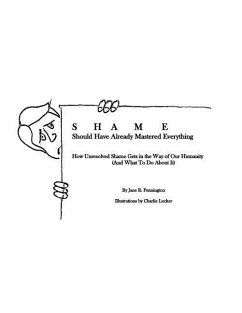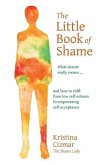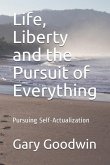Why a workbook on shame? The reason that mending our shame wounds is the most important work a human being can do is because it brings us face to face with our humanity. Learning how to value our humanity, and accept our humanness, restores us to sanity. When we avoid our unresolved shame we navigate through our personal relationships and social interactions on automatic pilot using ingrained, habitual reactions that disconnect us from ourselves and others. Continuously defending against a sense of inferiority, we deny ourselves the opportunity to really know who we are and care for ourselves. We miss out on the comfort and reward of fulfilling relationships, satisfying work, and orderly and sane lives. Instead our lives have constant go-rounds of bitterness, anger, rage, shame, isolation, discouragement, despair, contempt for our self and others, self-hate and substance abuse. Our habitual strategies protect us and feed the drama, chaos and unease in our life. It is the objective of this workbook to help you increase your awareness of the habitual strategies used to avoid shame. The exercises will offer you ways to start noticing your reactions as they occur. Once you start observing and noticing, you can then begin to practice wholesome behaviors that lead you to your Wise Self. A Wise-Self is an aware self. A Wise-Self is assertive and not aggressive, is kind and giving and understanding to others while maintaining good boundaries, works to stay connected with self and others by reaching out and not hiding away, refrains from harmful behavior, thoughts and feelings and practices shame-busting self-talk that uplifts and keeps their thinking positive. This workbook suggests that we develop a practice of stepping back; giving space to whatever feels defective, abiding the discomfort, distress and unpleasantness and noticing our sense of deficiency, all the while with a non-judgmental and gentle awareness. Everything that comes up for us can then be our teacher. The practices in this workbook are a place to continually return to. They are not a set of goals. They are ways of behaving, thinking, and feeling that help keep us in touch with our humanity and provide the guidance to help live a wholesome life. In order to have a wholesome life, one must practice wholesome ways.
Hinweis: Dieser Artikel kann nur an eine deutsche Lieferadresse ausgeliefert werden.
Hinweis: Dieser Artikel kann nur an eine deutsche Lieferadresse ausgeliefert werden.








